HEALTH CARE ACCESS:
There are two types of public health clinics available to rural Ghanaians: Health Centers and Community-Based Health Planning and Services (CHPS) compounds. Health Centers serve large geographic areas within a district and are staffed by physicians. CHPS compounds serve small clusters of communities and are staffed by live-in nurses. The nurses provide basic services and, if capacity allows, they conduct home visits to families in the communities.
Even with this coverage, it is important to note that medications, equipment, and essential infrastructure are often not available in these clinics and the physician density in Ghana remains around 0.2 physicians per 1,000 people. According to the World Health Organization, there should be a minimum of 2.3 physicians per 1,000 people to qualify a country as having adequate access to medical attention.
Another key factor for health care access in Ghana is insurance. Ghana’s National Health Insurance plan offers universal coverage, but few rural community members are actively enrolled. During Medical Brigades, community members are educated about the benefits of health insurance, and are encouraged to enroll (or re-enroll) in the National Health Insurance Plan.
Egyankwa has a CHPS compound, and the nearest Health Center is a 1 hr walk away in Essuehyia. The most common illnesses in Egyankwa are malaria and chest infections.


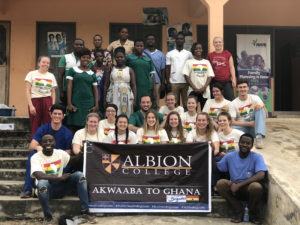
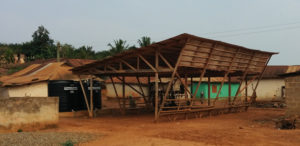
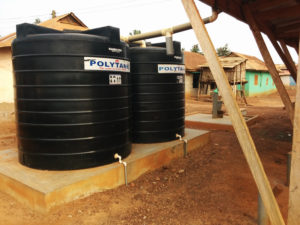 In January 2011, Pennsylvania State University and Indiana University constructed a Community-wide Rainwater Harvester (CWRH) in Egyankwa as well as helped set up a water committee consisting of a president, treasurer, secretary and two agents responsible for selling the water from the system. The generated funds are used to maintain the system as well as to fill up the system’s storage tanks with purchased water from tanker trucks during the dry season, which is again sold to the community.
In January 2011, Pennsylvania State University and Indiana University constructed a Community-wide Rainwater Harvester (CWRH) in Egyankwa as well as helped set up a water committee consisting of a president, treasurer, secretary and two agents responsible for selling the water from the system. The generated funds are used to maintain the system as well as to fill up the system’s storage tanks with purchased water from tanker trucks during the dry season, which is again sold to the community.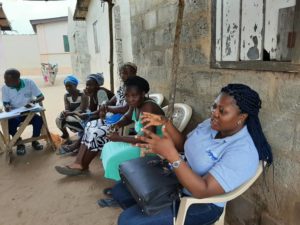
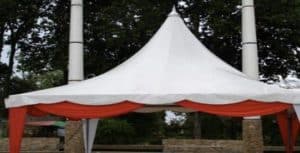 EGYANKWA’S BUSINESS SOLUTION
EGYANKWA’S BUSINESS SOLUTION